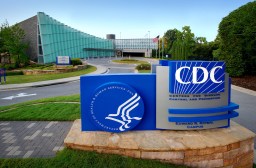Data center closures a workforce concern
Closing and consolidating data centers is not just a technical shift for agencies but a management and workforce concern as well, officials said at an event Tuesday.
As federal government tries to modernize legacy systems, move to the cloud and eliminate data centers, federal leaders need to focus on retraining employees instead of viewing them as obsolete or looking to Silicon Valley to bring about change, panelists urged during a presentation on data center optimization at the ATARC Federal Cloud Computing Summit in Washington, D.C.
Closing data centers has been a long-running goal in federal government, driven by the Federal Data Center Consolidation Initiative.
A new initiative currently in draft form would build on FDCCI by focusing on moving to the cloud, freezing the data center footprint and expansion of data centers, consolidating or closing existing centers, and promoting shared services, said panelist Dominic Sale, deputy associate administrator for the Information Integrity and Access Office at the General Services Administration.
A March GAO report said the FDCCI has already led to the closure of 3,125 data centers since its creation in 2011.
[Read more: GAO: Data center consolidation making progress, saving billions]
Moving to the cloud is a key aspect of data center optimization, Sale said, adding that it is the “the biggest on-ramp to the cloud we’ve had since FedRAMP was set up.”
Faced with data center optimization mandates, Melonie Parker-Hill, division chief of the Enterprise Operations Center at the State Department, said “we look at retraining staff members and retraining ourselves.”
Parker-Hill, who runs operations for the State Department’s domestic data centers, said implementing new things usually brings about two problems: the people or the process.
“You’re going to have people resisting because, ‘I don’t know about this, you’re trying to take my data center, you’re trying to take my job,’” Parker-Hill said.
The goal, she noted, is not to take jobs but to make use of current resources to capture greater efficiency.
Sale also said government should look retrain those employees who formerly operated the data centers.
“There’s this sense I get that some in the community feel like what we have here needs to be enacted on from outside, and in that if we’re going to fix federal IT it’s got to come from Silicon Valley,” Sale said.
He said instead, if the government supported reskilling people already working in government with even half the gusto with which it invests in recruiting new talent, “we would be in a whole different situation right now.”
The government should acknowledge that federal employees are IT professionals and need skills updates as well, he said.
“Everyone is going to need to adapt those skill sets — this is a management, HR effort,” Sale said. “We should think about all of the things that we still need to do from an IT perspective and retrain our folks versus thinking of them as obsolete when the data center closes.”
The transition into ubiquitous data center closure will likely take time. Sale said he thinks even in the next decade, data centers will still be around.
Tom Suder, president of the Advanced Technology Academic Research Center, said the solution will be a hybrid environment for a very long time.
“The idea that we need to invest in our people is absolutely critical,” he said.




